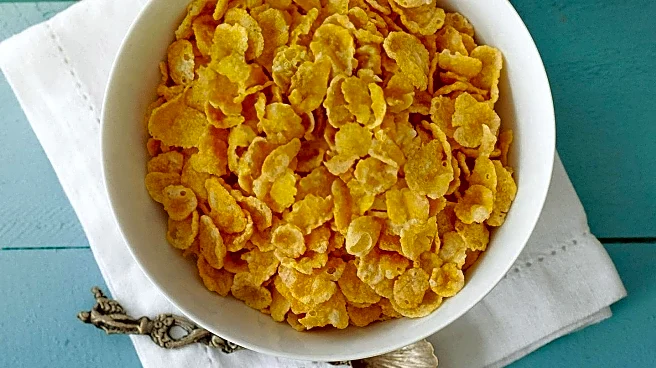Rapid Read • 8 min read
A recent study conducted by the University of Barcelona suggests that consuming a handful of peanuts daily could slow down cellular ageing. The research, published in the journal Antioxidants, involved 58 young, healthy volunteers who were asked to consume either 25 grams of peanuts or a daily serving of peanut butter over a six-month period. The study focused on measuring the telomere length in the participants' DNA, which are protective caps at the ends of chromosomes that shorten as the body ages. The findings indicated that the rate of telomere shortening was significantly reduced in the group consuming peanuts compared to the peanut butter group. This reduction in cellular ageing is linked to a decreased risk of age-related diseases such as heart disease, cancer, and type 2 diabetes.
AD
The implications of this study are significant for public health, as it suggests a simple dietary change could potentially mitigate the risks associated with age-related diseases. Peanuts, being rich in antioxidants, help combat free radicals that damage healthy cells, thus slowing down the ageing process. This research could influence dietary recommendations and encourage the inclusion of peanuts in daily nutrition to promote longevity and reduce healthcare costs associated with chronic diseases. The study also highlights the importance of choosing unsalted peanuts to avoid increasing blood pressure, which is a common concern with high sodium intake.
Further research may be conducted to explore the long-term effects of peanut consumption on cellular ageing and its impact on various age-related diseases. Health organizations and nutritionists might consider revising dietary guidelines to incorporate peanuts as a recommended snack for their potential health benefits. Additionally, public health campaigns could be launched to educate consumers on the advantages of incorporating peanuts into their diet, emphasizing the importance of choosing unsalted varieties.
This study opens up discussions on the broader role of antioxidants in diet and their potential to improve health outcomes. It also raises questions about the accessibility and affordability of peanuts as a health-promoting food, especially in regions where they are not commonly consumed. The cultural acceptance of peanuts as a daily snack could vary, influencing the effectiveness of such dietary recommendations.
AD
More Stories You Might Enjoy










